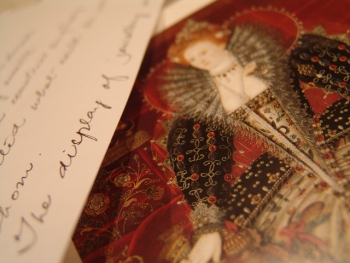Perfectionism is fear in a fancy dress.~Julia Cameron From The Listening Path, The Creative Art of Attention
We hear the word constantly. It is ubiquitous in our culture...the perfect holiday, the perfect pet; the perfect home; the perfect body; the perfect car; the perfect smile; the perfect job; the perfect bathroom; the perfect friend; the perfect lawn; the perfect life. Perfect. Perfect. Perfect. Perfection is a dangerous concept, because it is impossible to achieve. I lose sight of this truth over and over again.
A few weeks ago, I found myself making excuses about sitting down at the computer to work on my novel. "I just don't have the next scene down in my mind," I said to myself. "It has got to be perfect. This is the part where my character tells someone for the first time what she feels so ashamed about. This scene is pivotal; I have to do it justice. I have to be true to my character. I can't mess this up." The narrative in my mind drove me away from writing. I didn't write for two weeks. Usually I try to write several scenes a week. Perfectionism had cast its ugly spell.
Julia Cameron writes in her latest book, The Listening Path, The Creative Art of Attention: "We can do a great deal more than our fears would have us believe. We are afraid of looking foolish, and so we hang back, telling ourselves we are being sensible. The truth is, there is nothing sensible about hanging back. We deprive ourselves of the joy of creation. We deny our human need to create. Our dreams and desires are intended to be fulfilled. Hanging back, we thwart our true nature. We are intended to be creative, attend to the whisper that says, 'You can, just try.'"
Ms. Cameron's words rang true. The scene didn't need to be written perfectly. The scene merely needed to be written. I started writing at 8:30 am. When next I looked at the time, it was 12 noon. My fingers flew over the keys. The dialogue came. My character spoke to me. In some ways, I merely took dictation as she told me what she thought, how she felt. I can't explain what occurs when I sit down to write. The process overtakes me and it just happens. The key is transcending the need to "get it perfectly." Not being fooled by the fancy dress. Of course, the scene is not perfect, but it is good, and I can work on making it better. When I worked as a therapist, I used to tell my patients, "Things don't have to be perfect to still be wonderful." I will do well to continue heeding my own words.
What about you? Are there things you would try if you didn't have to do them perfectly?

